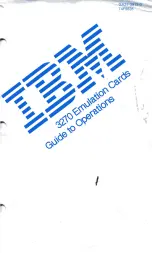
User Manual
BCM1250/BCM1125/BCM1125H
10/21/02
B r o a d c o m C o r p o r a t i o n
Document
1250_1125-UM100CB-R
Section 6: DRAM Page
131
T
IMING
P
ARAMETER
G
UIDELINES
The memory controller timing parameters must be configured to match the devices and board delays in the
system. This section gives some guidelines for the parameters.
During a read from memory the controller will use the DQS strobe supplied with each byte of the data to latch
the four data-beats. The data is subsequently read out and passed to the DBF data buffer. Since there will be
skew across the nine DQS lines, the different bytes are captured from the memory at different times, but they
are eventually read out of the latch as a single value. There are three factors that influence the timing. (1) The
controller must not start looking for DQS until the SDRAM drives it to a valid low as part of the preamble. (2)
The controller must start looking for the DQS before the earliest DQS returns. (3) The data must not be read
from the latch before the byte with the latest DQS has been written and allowed to settle. Taken together these
constraints fix the window in which the first DQS of each byte lane must be received at the controller. The tCrD,
tCrDh and tFIFO parameters in the
mc_timing1
register describe this window.
As a starting point the tCrD is the integer part of the CAS latency, the tCrDh is set for half-cycle CAS latency
and the tFIFO is set to 1 for normal delay in reading out from the data latch. The full story is shown in
which shows the window for the first DQS relative to clock for different settings of the three parameters. The
count n represents the number of cycles since CAS, so for a CAS latency n device the ideal DQS would be at
the rising edge that starts cycle n.
Figure 22: Nominal Windows at 133MHz for First Edge of DQS for Various Settings of [tCrD, tCrDh,
tFIFO]
ticks after CAS
n-1
n
n+1
n+2
mclk
[n,0,1]
[n,1,1]
[n,0,2]
[n,1,2]
[n+1,0,1]
[n+1,1,1]
[n+1,0,2]
[n+1,1,2]
[n-1,0,2]
[n-1,1,2]
















































